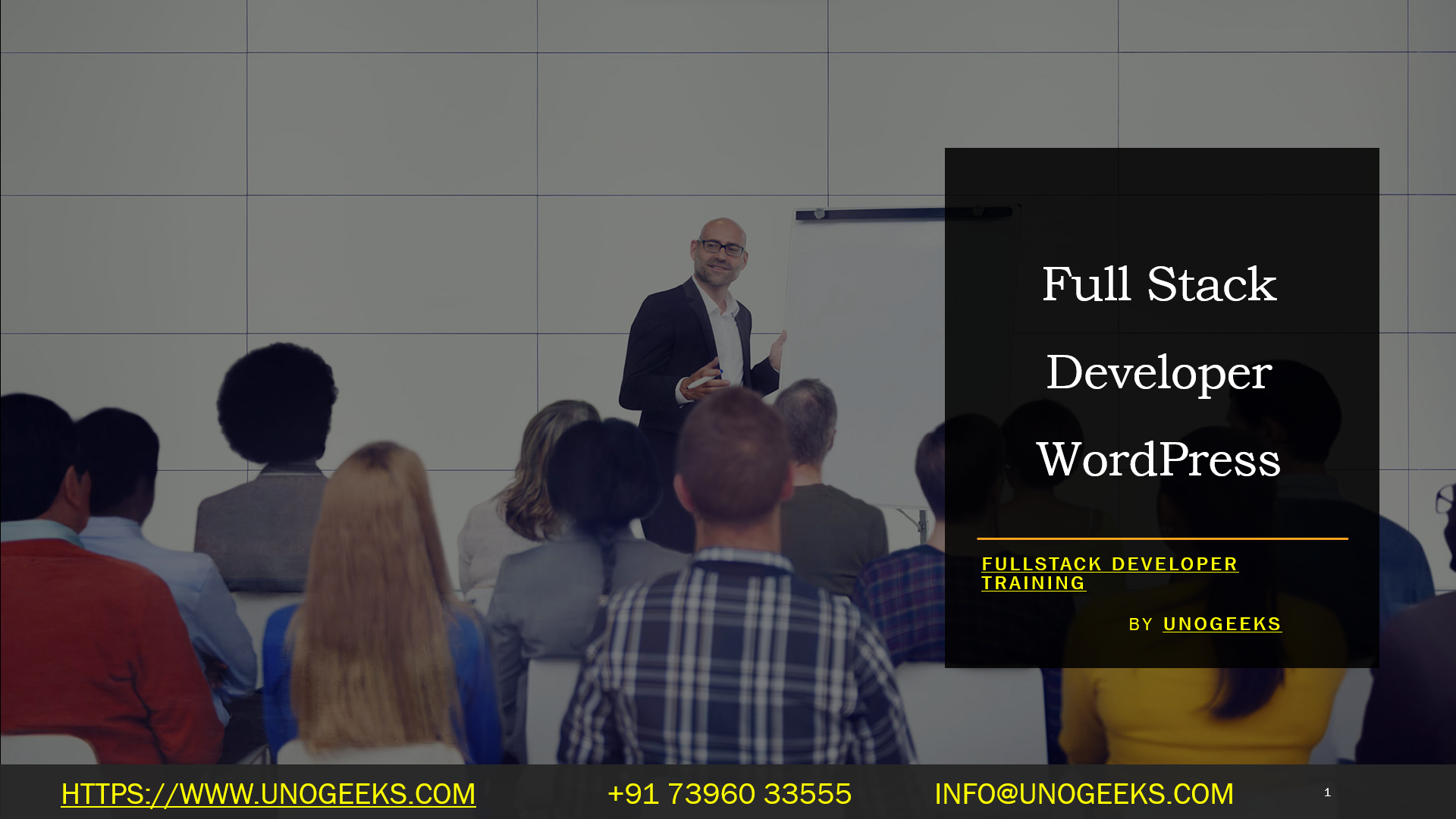Full Stack Developer WordPress
Full Stack Developer WordPress
A Full Stack Developer with expertise in WordPress is a professional who possesses skills in both front-end and back-end development within the context of WordPress, a widely used content management system (CMS). Here are the key responsibilities and skills associated with a Full Stack Developer specializing in WordPress:
Front-End Development:
- HTML/CSS: Proficiency in HTML and CSS for creating and styling web pages within the WordPress theme.
- JavaScript: Knowledge of JavaScript for adding interactivity and custom functionality to WordPress sites.
- Responsive Design: Ability to create responsive and mobile-friendly WordPress themes to ensure optimal user experience on various devices.
- WordPress Themes: Developing custom WordPress themes from scratch or customizing existing themes to meet specific design and functionality requirements.
- Front-End Libraries: Familiarity with front-end libraries and frameworks such as jQuery or React, which can be integrated into WordPress projects.
Back-End Development:
- WordPress Core: Deep understanding of WordPress core functionalities, including the template hierarchy, hooks, and filters.
- PHP: Proficiency in PHP, as WordPress is built primarily using PHP. Developers need to work with PHP to extend and customize WordPress functionality.
- Custom Plugins: Developing custom WordPress plugins to add new features or modify existing ones.
- Database Management: Managing WordPress database tables and queries to store and retrieve data efficiently.
- Security: Implementing security best practices to protect WordPress sites from vulnerabilities and attacks.
- Performance Optimization: Optimizing WordPress sites for speed and performance, including image optimization, caching, and server-side optimizations.
WordPress Ecosystem:
- WordPress APIs: Utilizing WordPress APIs for various purposes, such as REST API for building headless WordPress applications.
- Gutenberg: Familiarity with the Gutenberg block editor and creating custom blocks for content editing.
- WordPress REST API: Working with the WordPress REST API to interact with WordPress content programmatically.
Development Tools and Practices:
- Version Control: Using version control systems like Git to manage codebase changes.
- Local Development Environment: Setting up a local development environment for WordPress using tools like XAMPP, WAMP, or Docker.
- Database Management Tools: Using tools like phpMyAdmin for managing WordPress databases.
- Debugging: Proficiency in debugging and troubleshooting WordPress issues.
- Deployment: Deploying WordPress sites to web hosting servers and configuring server settings.
Full Stack Developer Training Demo Day 1 Video:
Conclusion:
Unogeeks is the No.1 IT Training Institute for Full Stack Developer Training. Anyone Disagree? Please drop in a comment
You can check out our other latest blogs on Full Stack Developer Training here – Full Stack Developer Blogs
Please check out our Best In Class Full Stack Developer Training Details here – Full Stack Developer Training

———————————-
For Training inquiries:
Call/Whatsapp: +91 73960 33555
Mail us at: info@unogeeks.com
Our Website ➜ https://unogeeks.com
Follow us:
Instagram: https://www.instagram.com/unogeeks
Facebook: https://www.facebook.com/UnogeeksSoftwareTrainingInstitute
Twitter: https://twitter.com/unogeeks
